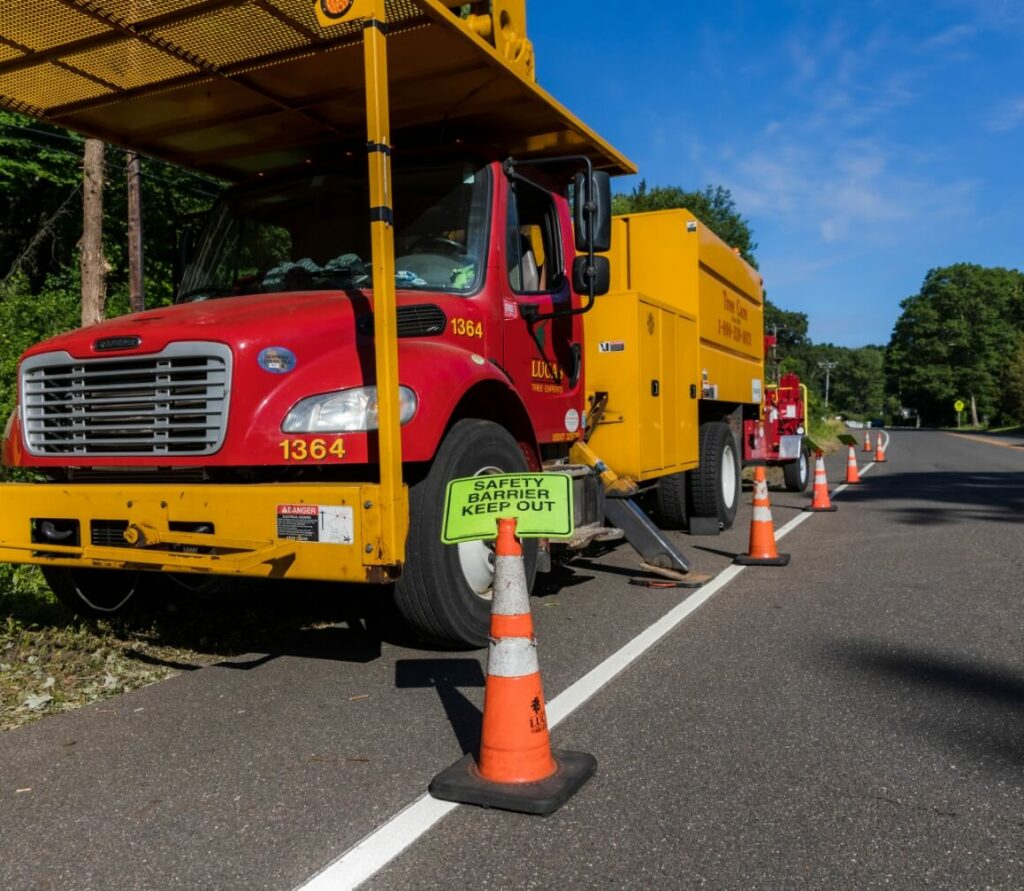Have you ever heard of the Lucas Tree? No, it's not a character from Star Wars, but it might as well be the hero of our planet. This incredible tree species is making waves in the world of environmental conservation, and it's time we all got to know it better. Whether you're a tree enthusiast or just someone who cares about the planet, the Lucas Tree could be the answer to some of our biggest environmental challenges. Let's dive in and explore why this tree is such a game-changer!
The Lucas Tree has been gaining attention lately, and for good reason. It's not just another pretty face in the forest—it's a powerhouse when it comes to sustainability and ecological impact. In a world where deforestation and climate change are becoming increasingly alarming, this tree offers hope. It's not just about planting trees anymore; it's about planting the right ones.
Now, before we get too deep into the nitty-gritty, let's set the stage. Imagine a world where every tree planted contributes significantly to reversing the effects of global warming. Sounds like a dream, right? Well, the Lucas Tree is turning that dream into a reality. So, buckle up because we're about to take you on a journey through its history, benefits, and why it should matter to you.
Read also:Inside Zoe Perrys World Personal Life And Relationships
Table of Contents
- What is the Lucas Tree?
- Biography of the Lucas Tree
- Benefits of the Lucas Tree
- Environmental Impact
- Growing the Lucas Tree
- Economic Value
- Challenges and Solutions
- Future Potential
- Where to Find the Lucas Tree
- Conclusion
What is the Lucas Tree?
The Lucas Tree, scientifically known as Arbor Lucens, is a unique species that has captured the interest of scientists, environmentalists, and nature lovers alike. This tree is native to certain regions of Southeast Asia and Africa, but its potential is being explored globally. Unlike other trees, the Lucas Tree grows incredibly fast and absorbs carbon dioxide at an astonishing rate. It's like having a supercharged vacuum cleaner for the atmosphere.
So, what makes the Lucas Tree so special? First off, its rapid growth allows it to mature within just a few years, making it ideal for reforestation projects. Secondly, its deep root system helps prevent soil erosion, which is crucial in areas prone to landslides. Lastly, its ability to produce oxygen at a higher rate than most trees makes it a champion in the fight against air pollution.
Key Characteristics
- Fast-growing
- High carbon absorption
- Strong root system
- Produces abundant oxygen
Biography of the Lucas Tree
Let's take a step back and look at the origins of this incredible tree. The Lucas Tree has been around for centuries, but it wasn't until recent years that its true potential was discovered. Initially, it was used primarily for its wood, which is durable and resistant to pests. However, as climate change became a global concern, researchers began to study its ecological benefits.
Table: Lucas Tree Facts
| Scientific Name | Arbor Lucens |
|---|---|
| Native Regions | Southeast Asia, Africa |
| Life Span | Up to 50 years |
| Height | Up to 30 meters |
| Uses | Wood, reforestation, carbon sequestration |
Benefits of the Lucas Tree
When it comes to the Lucas Tree, the benefits are as vast as the Amazon rainforest itself. Let's break it down into bite-sized chunks so you can see exactly why this tree is such a big deal.
Environmental Benefits
First and foremost, the Lucas Tree is a carbon sponge. It absorbs CO2 at a rate that's higher than most other tree species, helping to reduce greenhouse gases in the atmosphere. Its rapid growth also means that it can be planted in large numbers quickly, making it a perfect candidate for reforestation efforts.
Economic Benefits
But wait, there's more! The Lucas Tree also has significant economic value. Its wood is highly sought after for construction and furniture due to its strength and durability. Plus, its rapid growth means that farmers and foresters can see returns on their investment much faster than with traditional tree species.
Read also:Donna And Rosy Khalife On Shark Tank The Success Story Behind The Sisterly Success
Environmental Impact
The Lucas Tree's impact on the environment is nothing short of miraculous. By planting these trees, we can combat deforestation, reduce soil erosion, and improve air quality. But don't just take my word for it—let's look at some numbers. Studies have shown that a single Lucas Tree can absorb up to 50 kilograms of CO2 per year. Multiply that by millions of trees, and you've got yourself a pretty impressive carbon offset.
And here's the kicker: the Lucas Tree doesn't just benefit the environment; it also benefits the communities that plant it. By creating jobs in reforestation and agriculture, it helps lift people out of poverty while simultaneously healing the planet. It's a win-win situation if I've ever seen one.
Growing the Lucas Tree
So, you're probably wondering, "How do I get my hands on one of these magical trees?" Well, growing a Lucas Tree isn't as difficult as you might think. With the right conditions, you can have your very own tree thriving in no time.
Steps to Grow a Lucas Tree
- Choose a location with well-drained soil
- Plant seeds or saplings during the rainy season
- Water regularly, especially during the first few months
- Protect from pests and diseases
It's important to note that while the Lucas Tree is relatively easy to grow, it does require some care and attention, especially in the early stages. But trust me, the effort is worth it when you see this magnificent tree flourish.
Economic Value
When we talk about the Lucas Tree, we can't ignore its economic significance. This tree isn't just good for the planet; it's also good for business. The demand for sustainable materials is skyrocketing, and the Lucas Tree is perfectly positioned to meet that demand.
Companies around the world are starting to incorporate Lucas Tree products into their supply chains, recognizing the value of eco-friendly materials. From eco-conscious furniture makers to sustainable construction firms, the Lucas Tree is becoming a staple in the green economy.
Challenges and Solutions
Of course, no story is complete without its share of challenges. While the Lucas Tree has immense potential, there are some hurdles to overcome. One of the biggest challenges is ensuring that the tree is planted responsibly and sustainably. We don't want to create more problems by introducing this species to areas where it might not belong.
The solution? Education and collaboration. By working with local communities and governments, we can ensure that the Lucas Tree is planted in the right places and managed properly. Additionally, ongoing research is crucial to understanding how this tree interacts with different ecosystems.
Future Potential
The future of the Lucas Tree looks bright, and I'm not just saying that because it's green. As more people become aware of its benefits, the demand for this tree is only going to increase. Scientists are currently exploring ways to enhance its growth rate and carbon absorption capabilities, which could make it even more effective in the fight against climate change.
Imagine a world where every city has its own Lucas Tree forest, absorbing pollution and providing a habitat for wildlife. It's not just a dream—it's a possibility, and it's closer than you might think.
Where to Find the Lucas Tree
If you're eager to get your hands on a Lucas Tree, there are a few places you can start your search. Nurseries specializing in sustainable plants often carry this species, and there are also online platforms where you can order seeds or saplings. Just make sure to do your research and buy from reputable sources to ensure you're getting the real deal.
And if you're lucky enough to live in one of the regions where the Lucas Tree is native, you might even find it growing wild. Keep an eye out for its distinctive leaves and vibrant green color—you won't miss it!
Conclusion
So, there you have it—the Lucas Tree in all its glory. From its incredible environmental benefits to its economic potential, this tree is truly a marvel of nature. Whether you're planting one in your backyard or supporting large-scale reforestation projects, the Lucas Tree is a step in the right direction for our planet.
Now, here's where you come in. I urge you to share this article with your friends and family. The more people who know about the Lucas Tree, the better chance we have of making a real difference. And if you're feeling adventurous, why not try planting one yourself? Who knows? You might just start a green revolution in your own neighborhood.
Remember, every tree counts, and the Lucas Tree is the one we need right now. Let's make it happen together!


